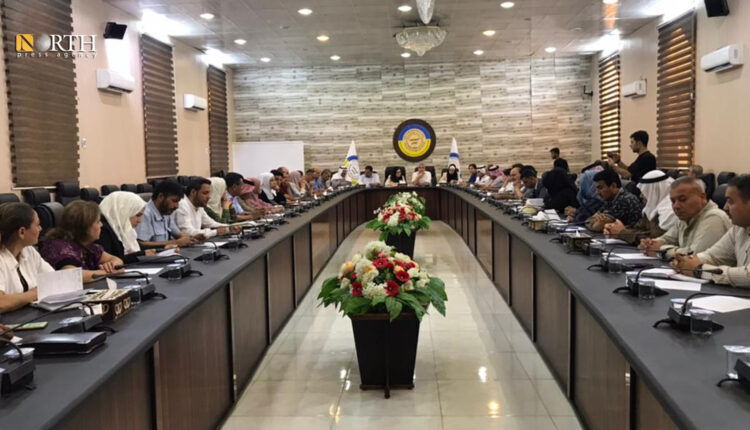QAMISHLI, Syria (North Press)— In a bid to deal with the economic collapse in Syria, the Autonomous Administration in North and East of Syria (AANES) discuss economic projects and plans aimed at diversifying the production base and providing food security.
The Economy Board of the AAENS aims to support medium and small projects to improve industrial and agricultural sectors.
These projects face challenges such as security instability due to external attacks and a lack of essential production tools that need to be imported from abroad.
Muhammad Shawqi, Co-chair of the AANES’ Economy Board, says that they plan to achieve economic security and enhance key economic sectors in northeastern Syria.
“Our objective is to ensure food security, diversify the production base in the region, and create sustainable job opportunities for the local population. However, we face significant challenges in this endeavor. We lack the necessary financial and technical resources to effectively enhance the productive sectors in the areas held by the AANES,” the official tells North Press.
Shawqi says that these challenges can be attributed to the blockade imposed on Syria and the monopolistic control exercised by certain parties over the quantity and types of materials entering the region.
Agriculture and Industry Sectors
Agriculture is crucial for local residents’ income, so it receives a primary support by the AANES.
The AANES’ policy has achieved a significant success in supporting farmers during this year’s wheat season, as the region’s production exceeded one million tons despite the lack of rainfall. For the past two years, the region faced challenging circumstances, including limited rainfall, water disruptions imposed by the Turkish side, and high agricultural costs.
The Economy Board prioritizes developing the agricultural sector, improving its structure and providing necessary services to activate and enhance productivity, according to Shawqi.
“The AANES always works on supporting farmers primarily through providing them with fuel and at subsidized prices. In addition, efforts are made to provide agricultural production necessities such as medicines, seeds, fertilizers, and others. Wheat seeds are locally available, but the remaining requirements are imported from abroad,” he notes.
On the industrial sector, he stresses that they support this sector mainly regarding the issue of fuel for factories licensed by the AANES.
“The AANES prepares a strategy for small and medium enterprises, and it will try to implement it in the upcoming period,” he points out.
“This will greatly support the industrial sector and diversify the production base, ensuring the fulfillment of many local market needs, especially since we currently adopt a policy of substituting imported goods with alternatives. Furthermore, it will serve as a gateway to opening numerous job opportunities in the near future,” he contends.
To strengthen and diversify production in northeast Syria, the Economy Board has initiated a project to organize the business sector and classify economic activities. This project holds a significant position as the first of its kind in the region.
The official states, “This project is designed in line with internationally adopted standards and principles, and it brings about added value that contributes to securing the necessary funds for investments and expanding production. It will serve as a fundamental pillar in revitalizing the economic sector and enhancing its key indicators.”

